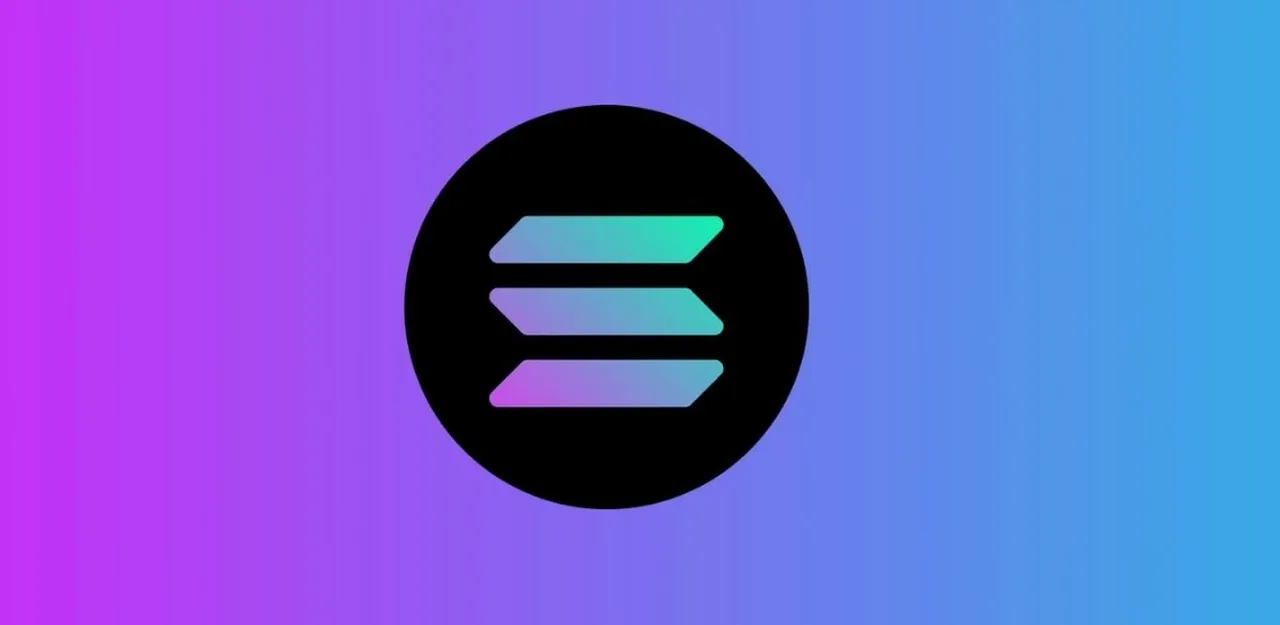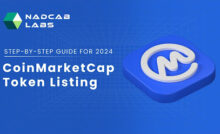Crypto
Unleashing the Power of Solana: Revolutionizing DeFi with Lightning Speed and Low Costs


Solana is a cutting-edge blockchain platform that is revolutionizing the world of decentralized finance. With its lightning-fast transaction speeds and low fees, Solana is quickly gaining popularity among developers and investors alike. Powered by a unique consensus algorithm called Proof of History, Solana is able to process thousands of transactions per second, making it one of the fastest blockchain networks in existence. But Solana is more than just a fast and efficient blockchain. It also offers a wide range of features and tools that make it an attractive choice for developers looking to build decentralized applications. From smart contract capabilities to seamless interoperability with other blockchains, Solana provides a robust and scalable infrastructure for the next generation of decentralized applications. In this article, we will dive into the key features and benefits of Solana, exploring why it has become a game-changer in the world of blockchain technology. Whether you’re a developer looking to build on Solana or an investor interested in its potential, this article will provide you with the essential information you need to understand and leverage the power of Solana. So let’s jump in and discover what makes Solana the future of decentralized finance.
What is Solana?
Solana is a high-performance blockchain platform known for its fast transaction speeds and low fees. It operates on the core principle of providing a scalable and efficient infrastructure for decentralized applications (dApps) and decentralized finance (DeFi) solutions. Solana achieves this through its unique consensus algorithm called Proof of History (PoH), which timestamps transactions and ensures secure ordering. Key Components of Solana:- Proof of History (PoH): Solana’s innovative consensus mechanism that enhances transaction speed and security.
- Tower BFT: Solana’s high-performance consensus algorithm that enables fast block confirmation.
- Solana SDK: A comprehensive toolkit that developers can use to build and deploy decentralized applications on the Solana blockchain.
- Solana Runtime: A secure and efficient environment for executing smart contracts on the Solana network.
- Decentralized Finance (DeFi): Solana’s fast and low-cost transactions make it an ideal platform for DeFi protocols such as decentralized exchanges (DEXs) and lending platforms.
- Gaming: Solana’s high throughput and low latency capabilities make it suitable for decentralized gaming applications.
- Tokenization: Solana enables the creation and management of digital assets, allowing for tokenization of real-world assets such as art, real estate, and securities.
- As the Solana ecosystem continues to grow, scalability and network congestion may pose challenges. However, ongoing research and development efforts aim to address these concerns.
- Future developments include the integration of cross-chain interoperability, enabling seamless communication and collaboration between different blockchains.
- Serum: An automated market maker (AMM) and decentralized exchange (DEX) built on the Solana blockchain.
- Raydium: A liquidity protocol built on Solana that enables yield farming, automated market making, and other DeFi functionalities.
The Technology behind Solana
Solana is built on a set of innovative core principles that make it a high-performance blockchain platform. Its unique consensus algorithm, Proof of History (PoH), ensures transaction ordering and timestamps, while the Tower BFT consensus algorithm enables fast and secure validation. Solana operates with a focus on scalability, capable of processing thousands of transactions per second. The Solana ecosystem is supported by key components such as the Solana SDK, which provides developers with tools to create decentralized applications. Solana Runtime facilitates efficient smart contract execution on the network. Its design also incorporates advanced cryptography and data compression techniques, ensuring the security and efficiency of transactions.- Practical Applications: Solana is commonly used for decentralized finance (DeFi) applications, gaming platforms, and tokenization projects. Its fast transaction speeds and low fees make it ideal for high-frequency trading and other time-sensitive operations.
- Challenges and Future Developments: Solana faces challenges related to scalability and network congestion. However, ongoing developments to improve the protocol and infrastructure are expected to address these issues. The ecosystem’s future development includes plans for interoperability and cross-chain communication.
- Notable Variations and Related Concepts: Serum and Raydium are notable projects built on the Solana network, offering decentralized exchange and liquidity provision services. These concepts integrate with Solana, expanding its capabilities and creating new opportunities in the decentralized finance space.
Key Features of Solana
Solana boasts several key features that set it apart in the world of blockchain technology. These features contribute to its high performance and scalability, making it a popular choice for various applications. 1. Proof of History (PoH) Consensus Algorithm: Solana’s unique consensus algorithm, Proof of History (PoH), enables fast and secure validation of transactions. It provides a historical record of events, ensuring the order and integrity of the blockchain. 2. Tower BFT Consensus Algorithm: Solana utilizes the Tower BFT (Byzantine Fault Tolerance) consensus algorithm to achieve consensus among network validators. This algorithm enhances security and allows Solana to handle thousands of transactions per second. 3. Solana SDK: Solana offers a comprehensive software development kit (SDK) that simplifies the creation of decentralized applications (dApps) on the platform. This SDK provides developers with the necessary tools and libraries to build and deploy their projects efficiently. 4. Solana Runtime: Solana Runtime is a dynamic program that allows developers to execute smart contracts on the Solana blockchain. It provides an environment for the deployment and execution of decentralized applications. With these features, Solana has found practical applications in various fields such as decentralized finance (DeFi), gaming, and tokenization. It ensures fast transaction processing and low fees, making it ideal for high-volume applications. In terms of challenges, Solana faces scalability concerns and network congestion. However, ongoing developments and optimizations aim to address these issues and further enhance the Solana ecosystem. In the realm of decentralized finance, notable projects like Serum and Raydium have emerged, offering decentralized exchange and liquidity provision services. These variations expand Solana’s capabilities in the DeFi space, providing users with additional options for accessing financial services. For more information about Solana’s key features and potential applications, visit the official Solana website.Building on Solana: Benefits for Developers
Solana offers a range of benefits for developers looking to build on a high-performance blockchain platform. Here are some key advantages:- Speed: Solana’s unique consensus algorithms, Proof of History (PoH) and Tower BFT, enable lightning-fast transaction throughput and low latency, making it ideal for high-demand applications and real-time interactions.
- Scalability: Solana’s architecture is designed for scalability, with the ability to process thousands of transactions per second. This allows developers to handle large user bases and high transaction volumes without sacrificing performance.
- Low Costs: With Solana’s efficient design and low fees, developers can build and deploy applications cost-effectively, making it more accessible for startups and developers with limited resources.
- Developer-friendly Tools: Solana provides a robust software development kit (SDK) and runtime environment that make it easy for developers to create and deploy decentralized applications (dApps). It offers a range of developer-friendly features, such as programming language support, smart contract capabilities, and integrated debugging tools.
- Ecosystem Support: Solana has a growing ecosystem with various tools, resources, and projects built around it. Developers can leverage this ecosystem to collaborate, learn, and find solutions to common challenges.
- Interoperability: Solana is compatible with other blockchain networks, allowing developers to integrate their applications with existing ecosystems and tap into a wider user base.
Investing in Solana: Potential for Growth
Investing in Solana: Potential for Growth Solana, with its high-performance blockchain platform, offers significant potential for growth when it comes to investing. Its core principles of speed, scalability, and low costs make it an attractive option for investors looking to capitalize on the booming decentralized finance (DeFi) market. Speed: Solana’s consensus algorithm, Proof of History (PoH), enables fast transaction processing, with a throughput of up to 65,000 transactions per second (TPS). This ensures quick execution of trades and reduces the risk of missed investment opportunities. Scalability: Solana’s unique Tower BFT consensus algorithm allows for horizontal scalability, meaning it can handle more transactions as the network grows. This scalability ensures that Solana can support the increasing demand and volume of the DeFi market, providing ample opportunities for investment. Low Costs: Unlike some other blockchain platforms, Solana offers low transaction fees, making it cost-effective for investors to engage in various activities within the ecosystem. This affordability attracts more investors and encourages participation in the Solana network. In terms of practical applications, Solana’s speed and scalability make it an ideal platform for various DeFi services, including decentralized exchanges, lending platforms, and yield farming. These applications not only provide investment opportunities but also contribute to the overall growth of the Solana ecosystem. However, it’s important to be aware of the challenges that Solana faces. With the increasing popularity of the network, scalability and network congestion can pose obstacles to smooth operations. Nonetheless, Solana’s development team is actively working on enhancing the platform’s performance and addressing these challenges. Looking ahead, the potential future developments and trends for Solana are promising. With ongoing advancements in the Solana ecosystem, including the development of new projects and partnerships, there are ample opportunities for growth and investment. As more developers and enterprises adopt Solana, its ecosystem will continue to expand, attracting further attention from investors. Overall, investing in Solana presents an exciting opportunity for growth due to its core principles of speed, scalability, and low costs. As the ecosystem continues to evolve and improve, there is a vast potential for investors to benefit from the expanding DeFi market and the advancements within the Solana network. Note: For more information on investing in Solana, please check out [insert external link here].Conclusion
With its impressive speed, scalability, and low costs, Solana has emerged as a promising blockchain platform for decentralized finance (DeFi) applications. The article has provided an updated overview of Solana, highlighting its unique features and practical applications in the booming DeFi market. Despite the challenges of scalability and network congestion, ongoing developments are being made to address these issues and improve the overall performance of the Solana network. Investing in Solana presents an exciting opportunity for growth, as it offers ample potential for investors to benefit from the expanding DeFi market. With its robust infrastructure and commitment to innovation, Solana is well-positioned to capitalize on the increasing demand for decentralized financial solutions. As the DeFi space continues to evolve, Solana’s speed and scalability will play a crucial role in driving the adoption of DeFi applications and attracting more users and developers to the platform. Solana’s unique features, coupled with its potential for growth and advancements, make it a compelling choice for investors looking to explore the world of decentralized finance.Frequently Asked Questions
Q: What is Solana?
Solana is a blockchain platform designed to support decentralized applications (dApps) and provide fast, scalable, and low-cost transactions.Q: What are the key features of Solana?
Solana is known for its speed, scalability, and low transaction costs, making it ideal for decentralized finance (DeFi) applications.Q: Why is Solana attractive to investors?
Solana’s high performance and cost-effectiveness make it an appealing option for investors looking to capitalize on the growing DeFi market.Q: What challenges does Solana face?
Solana faces challenges related to scalability and network congestion, which can potentially impact its performance.Q: Are there any developments to tackle these challenges?
Yes, Solana’s development team is actively working on addressing scalability and network congestion issues to improve the platform’s performance.Q: Is investing in Solana a promising opportunity?
Yes, investing in Solana presents an exciting opportunity for growth, given its potential within the booming DeFi market and ongoing advancements on the Solana network.Recent Posts
BlockDAG And Best Wallet Presale Participants Receive Free Skyren DAO Airdrop
Token airdrops have historically introduced investors to new blockchain projects. However, many distributions fail to…
3 months ago
Skyren DAO Token Surge Event: Remittix And Lightchain AI Communities First To Benefit
Airdrops have traditionally been used to introduce new investors to blockchain projects, but their effectiveness…
3 months ago
Bitcoin ETF Approval? Old News. Here’s Why Skyren DAO Could Outperform BTC 10-fold
The approval of Bitcoin ETFs was one of the most anticipated events in crypto history,…
3 months ago
Qubetics And Rexas Finance Holders: Claim Your 500 Free SKYRN Tokens Now
The blockchain space continues to evolve, with projects pushing security, scalability, and user engagement to…
3 months ago
Cardano Skyren DAO And Remmitix Potential Highlighted As Market Optimism Rises
As the cryptocurrency market recovers from recent volatility, several projects emerge as strong contenders for…
3 months ago
Cardano And Litecoin Ready To Rally: Analysts Predict 10x Gains For This Newcomer
The cryptocurrency market is showing strong bullish signals, with many altcoins poised for significant gains.…
3 months ago


